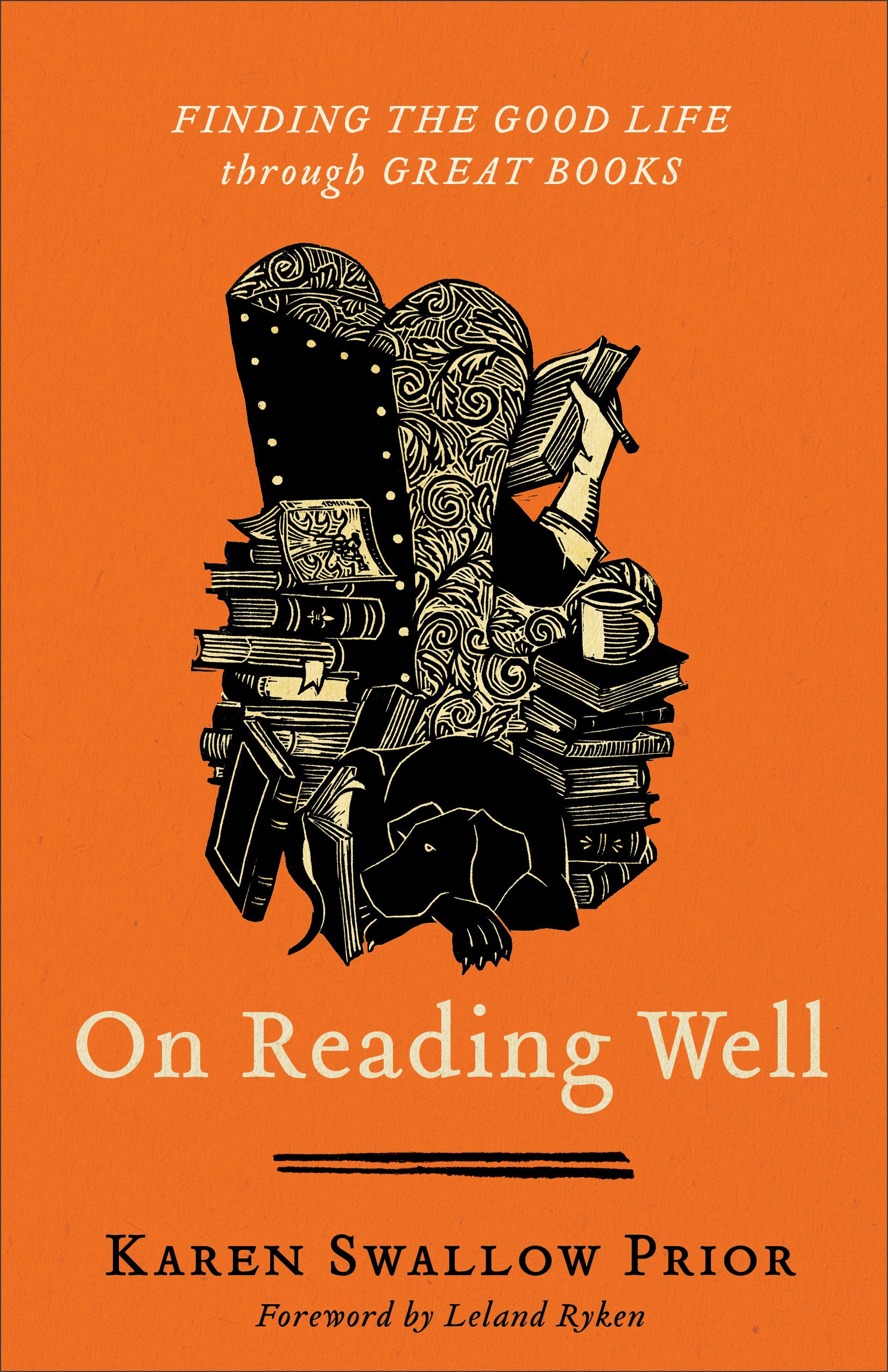
I am so grateful that my mom loves to read. Honestly, I think that is one of God’s coolest gifts of grace to me. If you know me at all…you know that I LOVE to read. When I was little, we didn’t have much money and library books were free to borrow. My mom used to take us to the public library once a week where my brother, sister, and I would check out the max number of books that you were allowed to have out at a time. If you were to have visited our family dinner table when I was a kid, there were many nights where we all had a book propped up while eating. Those were the days! No phones to scroll, just good ole fashioned books! There were even times that my mom would really need to get my attention about a discipline issue…and she would take away my books! That always got me back in line quickly!
It has been a privilege of mine to earn two degrees from Liberty University…yes, the one you have been reading about in the news this week. Liberty University is an incredible school that truly raises Champions for Christ. Most recent leadership aside, there are so many incredible things about Liberty and I’m proud to have two LU diplomas on my wall. One regret about my studies there is that I never had the privilege of taking a course from Karen Swallow Prior. I have enjoyed reading things she has written and listening to podcasts and other things where she has shared her heart on Christian scholarship, reading, and writing. Now that she is teaching at Southeastern Baptist Theological Seminary, perhaps I can take one of her classes there. I like the way she makes the reader think!
On Reading Well: Finding the Good Life Through Great Books is a fantastic tour through some of the classics and the way that these works can help us learn the cardinal, theological, and heavenly virtues. This is not a book to rush through. In fact, I read it over several weeks in an effort to really think about what she was pulling from the texts and how it connected to virtue she was highlighting in that section.
I highlighted several things while reading and have posted those notes below…
Introduction
- It’s not enough to read widely. One must also read well. p. 15
- Attending to the words on the page requires deliberation, and this improves with practice. p. 16
- “It is not the reading of many books which is necessary to make a man wise or good; but the well reading of a few, could he be sure to have the best.” Richard Baxter, p. 17
- “The ultimate test of a book, or of an interpretation, is the difference it would make in the conduct of life.” Mark Edmundson, University of Virginia in Why Read? p. 26
- “Our hearts traffic in stories. We are narrative animals whose very orientation to the world is fundamentally shaped by stories.” James K.A. Smith, Imagining the Kingdom, p. 27
- “Good books are a very great mercy to the world.” Richard Baxter, p. 30
Part One: The Cardinal Virtues
1. Prudence: The History of Tom Jones, a Foundling by Henry Fielding
- Virtue requires judgements and judgement requires prudence. Prudence is wisdom in practice. p. 34
- Prudence is wisdom at work on the ground, doing good and avoiding evil in real-life situations. p. 39
- The satirist loves in the way of God, who chastens those whom he loves. There is only one thing worse than being chastened: that is, not being chastened. p. 41
- The just use of knowledge that constitutes prudence devolves into mere cunning when that knowledge is used for unjust ends. p. 43
- This debate over the essential goodness or depravity of human nature has continued into the present day and is commonly cited as the fundamental division between conservative and liberal theology and politics. However, a question even more significant than whether human nature is essentially good or bad has emerged, and that is the question of whether such a thing as an essential human nature exists at all. p. 48
2. Temperance: The Great Gatsby by F. Scott Fitzgerald
- Temperance is not simply resisting temptation. It is more than merely restraint. Aquinas uses the example of a miser who eschews extravagance because of its expense: such a man is not temperate, for the temperate man would not desire extravagance. One attains the virtue of temperance when one’s appetites have been shaped such that one’s very desires are in proper order and proportion. p. 53
- Temperance is, for many of us raised in a culture birthed by consumerism, a virtue difficult to attain. p. 59
- In showing us Nick’s choice to erase the insult to Gatsby, the novel reminds us that we too are unreliable narrators of our own stories. And therefore the judgements made by our own limited perspectives must be tempered against the all-seeing eyes of God. p. 67
3. Justice: A Tale of Two Cities by Charles Dickens
- Justice is the mean between selfishness and selflessness. That mean has implications within political, economic, social, and racial realms, just as it has implications for the inner life of the soul. p. 71
- When the justice system becomes a form of entertainment, it is surely unjust. p. 74
- Injustice, no matter how seemingly private, always has public consequences. p. 77
- “There comes a time when the cup of endurance runs over, and men are no longer willing to be plunged into the abyss of despair.” Martin Luther King, Jr. p. 79
- The novel’s vision exposes the truth that prolonged systemic injustice inevitably bears the bitter fruit of violence. p. 80
- Justice concerns the right ordering of not only the relationships within a community but also the parts of a person’s soul. p. 82
4. Courage: The Adventures of Huckleberry Finn by Mark Twain
- Courage is measured not by the risk it entails but by the good it preserves. p. 88
- “Where your treasure is, there your heart will be also.” (Matthew 6:21) p. 89
- A brave act must be for a noble end in order to constitute the virtue of courage. p. 93
Part Two: The Theological Virtues
5. Faith: Silence by Shusaku Endo
- Faith is the “instrument” that brings us to the Christ who saves us.p. 107
- Faith, along with hope and love, is a theological virtue. The theological virtues differ from the cardinal virtues because they are not attained by human power but come from God. p. 107
- The excellence of one’s faith can be measured a number of ways: by the strength of one’s conviction, by the response to that conviction, and by the actual trust one places in the object of faith. Similarly, a colleague who is a New Testament scholar describes faith as having three primary elements: belief (cognitive), trust (relational), and fidelity (obedience). p. 107
- Reading virtuously, reading faithfully, depends greatly on accepting a text on its own terms and attending to how it is told as much as, if not more than, what it tells. p. 115
- Martin Luther cautioned, “Do not think lightly of faith. It is a work that is of all works the most excellent and most difficult.” p. 118
- “Giving all diligence, add to your faith virtue, to virtue knowledge, to knowledge self-control, to self-control perseverance, to perseverance godliness, to godliness brotherly kindness, and to brotherly kindness love. For if these thins are yours and abound, you will be neither barren nor unfruitful in the knowledge of our Lord Jesus Christ.” (2 Peter 1:5-8 NKJV) p. 119
6. Hope: The Road by Cormac McCarthy
- The four conditions of hope are that it regards something good in the future that is difficult but possible to obtain. p. 123
- Hope requires reckoning with the world as it is, with reality. p. 130
7. Love: The Death of Ivan Ilych by Leo Tolstoy
- In his book The Four Loves, C.S. Lewis famously explored four types of love, each associated with words from the Greek language: empathy (storge), friendship (philia), desire (eros), and the highest form of love (agape). p. 142
Part Three: The Heavenly Virtues
8. Chastity: Ethan Frome by Edith Wharton
- Chastity is the proper ordering of one good thing (sexual desire) within a hierarchy of other good things. p. 161
- Chastity is less about control of oneself than about love of the other. p. 171
9. Diligence: Pilgrim’s Progress by John Bunyan 10. Patience: Persuasion by Jane Austen
- The virtue of patience entails much more than merely waiting. The essence of patience is the willingness to endure suffering. p. 192
- Patience is not inaction. As the Bible says in James 5:11, patience is not passivity but perseverance. p. 193
- Patience is a virtue only if the cause for which that person suffers is good. p. 198
11. Kindness: “Tenth of December” by George Saunders
- Kindness isn’t sexy. It doesn’t dazzle you with wit and charm and verve. We want to be with the kid, even if we don’t want to be the kind. People envy the rich, the beautiful, the powerful, the courageous, and the wise. Do we ever envy the kind? p. 207
- To seek and celebrate the good for others is then to treat them as family in this way. This is what it means to be kind. p. 208
- Being kind—being like family—is so much more than being sensible, reserved, or mild. It is so much more than being nice. p. 211
12. Humility: “Revelation” and “Everything That Rises Must Converge” by Flannery O’Connor
- Humility is taking our place, no matter how small (or big), and fulfilling that place with a heart overflowing with love. The good life begins and ends with humility. p. 236


